Mom blended laughter and forgiveness into a life of faith
Every time I listen to Handel’s “Messiah,” I am especially moved by the haunting strains of one of its last songs, “I know that my Redeemer liveth.”
It starts tenuously, with an emphasis on the word know by the soprano soloist. Then the repetition of the melodic strands, and the image of that Redeemer, standing firm and tall like an Argonath standing on the side of the River Anduin: “and that he shall stand at the latter day upon the earth.” It makes faith bright and powerful and real.
Then the soloist pulls us back down, her tones dark, personal, as if confiding a secret.
“Though worms destroy this body, yet in my flesh shall I see God,” the soloist chunks the words, one after another, her rich vibrato helping us to feel each word — weighty and mysterious.
That connection to the earth — muscle and sinews, sweat, and dank rot — which suffuses the song, moves me to tears.
I’ve found these reactions especially powerful since June 15, 2013, when I stood in the harsh sun with my wife standing close, staring down at my mother’s grave, scattered with bright red roses. Torn by grief, I gazed down at that pile of dirt and thought about my mother’s body that would eventually rise to “see God.”
For you see, that song was a favorite of my mother’s.
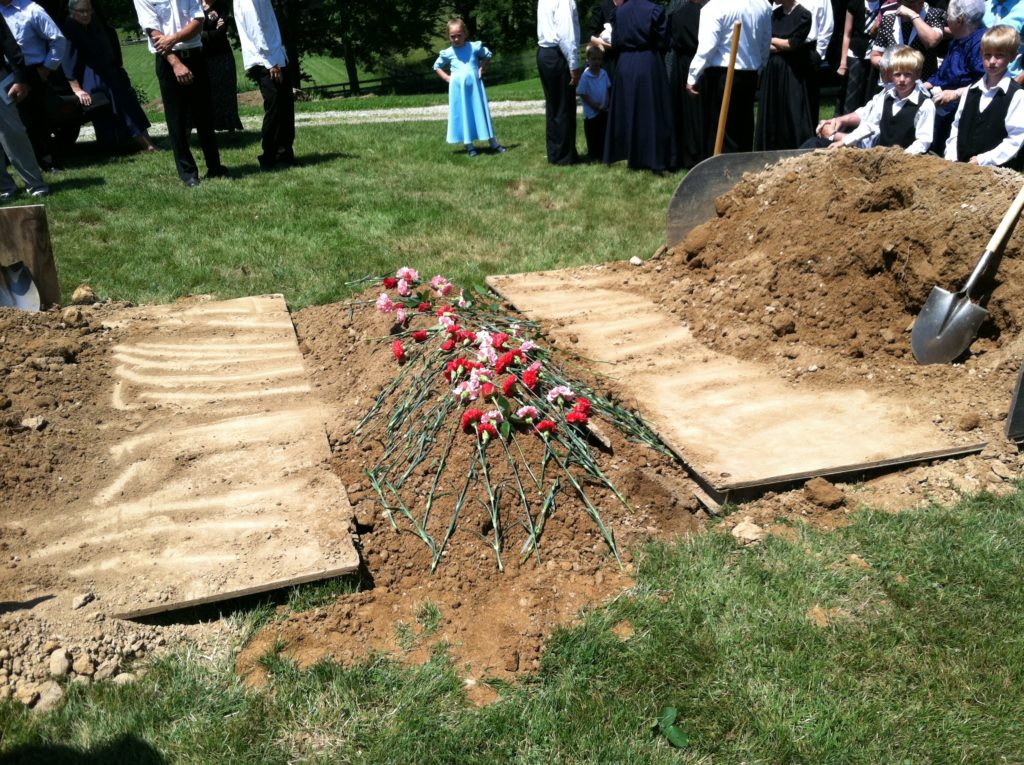
My mother was my first soul teacher. Although she’s gone, her spirit stays with me. And so as I drove home from a day in the classroom, asking myself what I had learned from her, I pulled over to the side of the road amidst an explosion of green foliage to jot down my ideas.
I think the most important thing I learned from my mother was how to love.
In our home, we never wondered whether mom and dad loved each other. This may sound strange — if you consider the stereotype of Amish-Mennonite couples — but their love was profoundly physical.
Three images come to mind.
The first is watching my mother standing at the door in the early morning light, reaching up to wrap her arms around my father’s neck, kissing him for all she was worth. When the family was together, Dad was not shy about kissing my mother. They shared an earthy, caring love that shone through even when they were arguing with each other.
Maybe that’s why they had eight kids.
Another moment. I remember him confiding in me — in one of those rare times when he was talking to me, man to man — that he just couldn’t stay away from my mother.
“At night, when I’ve been angry at her, I’ve tried to stay on my side of the bed,” his voice took on a note of wonder, “but then she’d move over…” His voice faded, and then he chuckled. “And that was that.”
And if I needed more proof, one of my uncles who was closest to my mother was happy to provide it.
“You know I’ve never entirely approved of your father,” he told me once, “but I’ve never questioned whether or not your Dad loved her. He’s always made her happy, know what I mean?”
And of course, by then at the age of 18, I did.
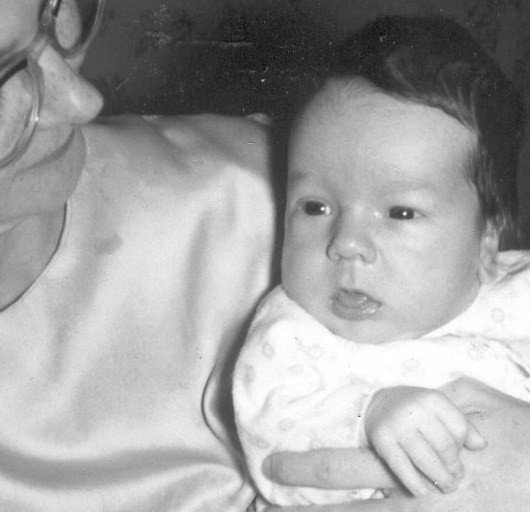
Of course, it took me another 30 years to find the love of my life. It made me happy when my mother approved of her — I knew it instantly, standing in the kitchen after leaving them to go get my mother a glass of water, and turning to see them in front of the living room window, sunshine framing their bodies as they leaned in to each other, deeply involved in a conversation although they had just met minutes before.
I knew it when my mother told me that she wanted to come to our wedding. I knew it when she expressed disappointment at not being able to attend, due to her health. My mother knew I had chosen the right person. She never told me that. But her approval was obvious based on the interest she showed in my marriage during our early morning chats as I drove to school each morning on Vashon Island.
I was glad for her approval.
Because to a large extent, she taught me how to love my spouse. She taught me that laughter was part of loving.
It was certainly part of her own marriage.
I’ve written about my father laughing so hard that he literally got down and rolled on the floor. That’s not a memory you forget.
But it was my mother who laughed until she cried.
I suspect it was fate that my mother fell in love with Erma Bombeck, a columnist who saw humor in the common aspects of life. This is, after all, the woman who titled one of her books The Grass Is Always Greener over the Septic Tank.
In a recent article, The Guardian described her topics as “carpooling, drive-through-everything, lost clarinet reeds, children who clamor for a pet and then never look after it, dirty ovens, gently bumbling husbands who drift through the house opening cabinets and never closing them, etc.”
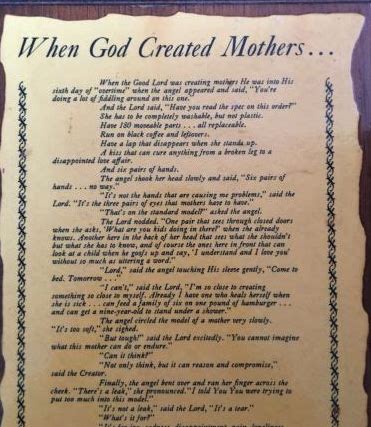
My mother appreciated that kind of humor. After a particularly difficult wash day, for example, she might remark with a twinkle in her eye that she was tired of having to scrub out the “skid marks in our underwear.”
Reading jokes aloud was a frequent family pastime in our home, often after dinner. When most of the nation was gathered around their TV screens, my family would share aloud from jokes we had harvested that day.
This was also one of the few times during her busy day when my mother could sit down and relax while her children divided up the tasks of washing and drying dishes. Occasionally, she would entertain us by reading aloud.
I remember one of those evenings well. My mother was sitting at the half-cleared supper table, a cup of creamy coffee by her side, reading from the newspaper. As my sister Rosey scrubbed a plate in the sink, she suddenly noticed Mom laughing silently, shaking with laughter.
“Hush everyone,” she called out. “Mom’s got something to read to us.”
Mom had a warm, sweet voice that caught the subtleties of Bombeck’s humor.
“There are basic differences between food and clothing: 1. You eat food and wear clothing. Food goes in; clothing goes on. 2. Do not bite anything that will bite back. This includes the dog, other babies, electrical cords and your father when he is watching professional football on television.”
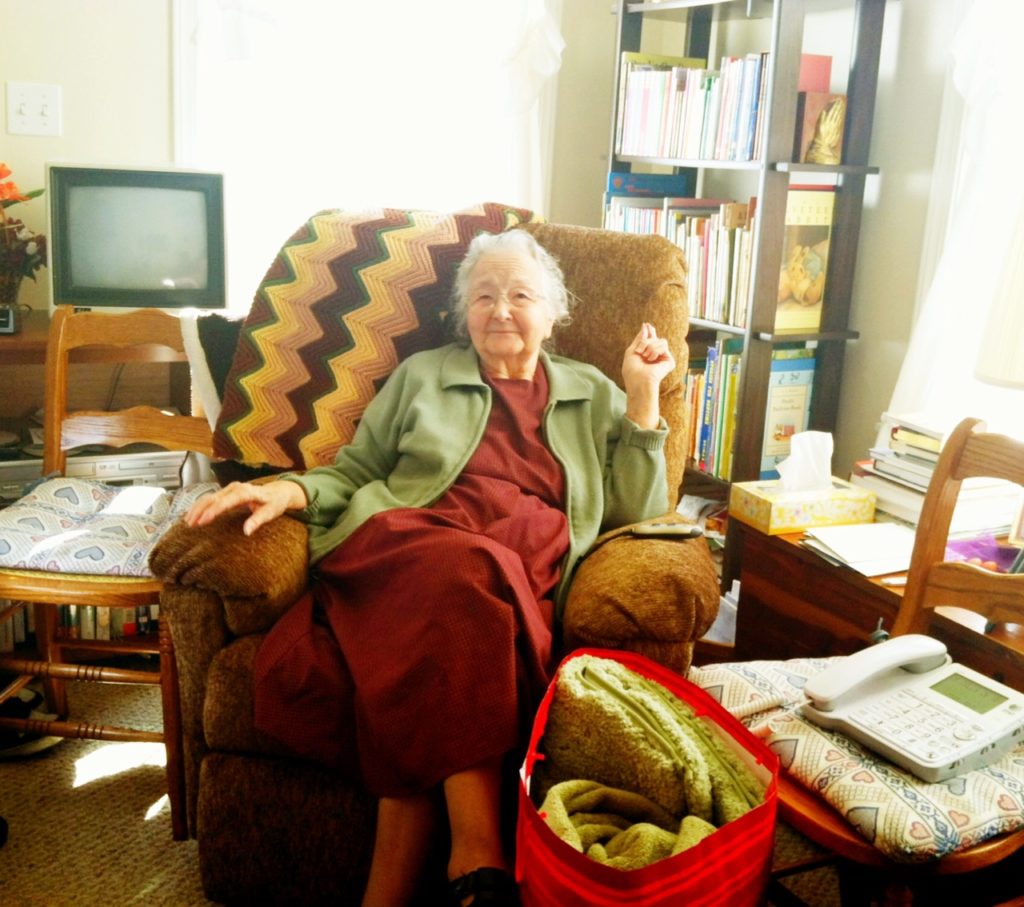
“Or playing his reel-to-reel tape recorder,” my brother Tim said. We all looked at our father, who shrugged. He didn’t approve of television, but he did like his tape collection.
By now, Mom was laughing so hard she was crying, so my older sister Marjorie took the column away, and continued reading it.
“3. Washing your face after a meal is not considered cruel and unusual punishment. It won’t do any good to report Mommy and Daddy to the police.”
We all shouted with laughter at that one. Perhaps it struck us funny because we knew what real punishment was like. After all, Mom had often said, jokingly — but there was an element of truth to her joke — “I don’t need a dishwasher. I have eight dishwashers, and they all run with a peach switch.”
Yes, reporting Dad and Mom to the police for washing your face was … ridiculous.
That image I have, of Mom laughing until she was crying, reminds me of why I love her so. Mom knew how to laugh at herself. She understood the secret of laughter, that it’s the emotional oil that allows people to rub along together in painful circumstances.
And there was plenty of pain when we were growing up. Dad struggled to make it on poverty wages, and I remember clearly moments when they raised their voices at each other. But their love for laughter always won through.
I’m surprised that it took me so long to learn her secret.
I think I realized this most clearly when I spent a year at home with my parents in 2009-10. I saw the way they cared for each other. I listened to them laugh together when frustrations hit. And I realized something important.
Laughter is a kind of grace given to us by the gods.
This hit home during the first year of my own marriage. I had moved to Seattle in November to join Laura, my fiance. Things were tight those first year, financially. I was looking for a full-time teaching position, and learning how to be a house husband to a very busy professional.
In the midst of all this tension, I began to listen to Laura tell imaginary stories about our cats — she told me immediately I must call them “bears,” due to their large paws and furry coats. There was an entire world in her head called Bearville, with a furry brown hero named Amish Bear who went to school with Delilah, a gentle white bear who was the apple of her father’s eye. Her father’s name, of course, was Bear McBear, mayor of Bearville, patriarch of his clan. There was even a skinny yellow cat named McSnicker, a Huck Finn character, who wore scuffed clothes and drove a three-wheeler. When Mommy and Daddy (that would be us) went on a camping trip, McSnicker squealed up to the house, and they leapt in. Then they followed us everywhere.
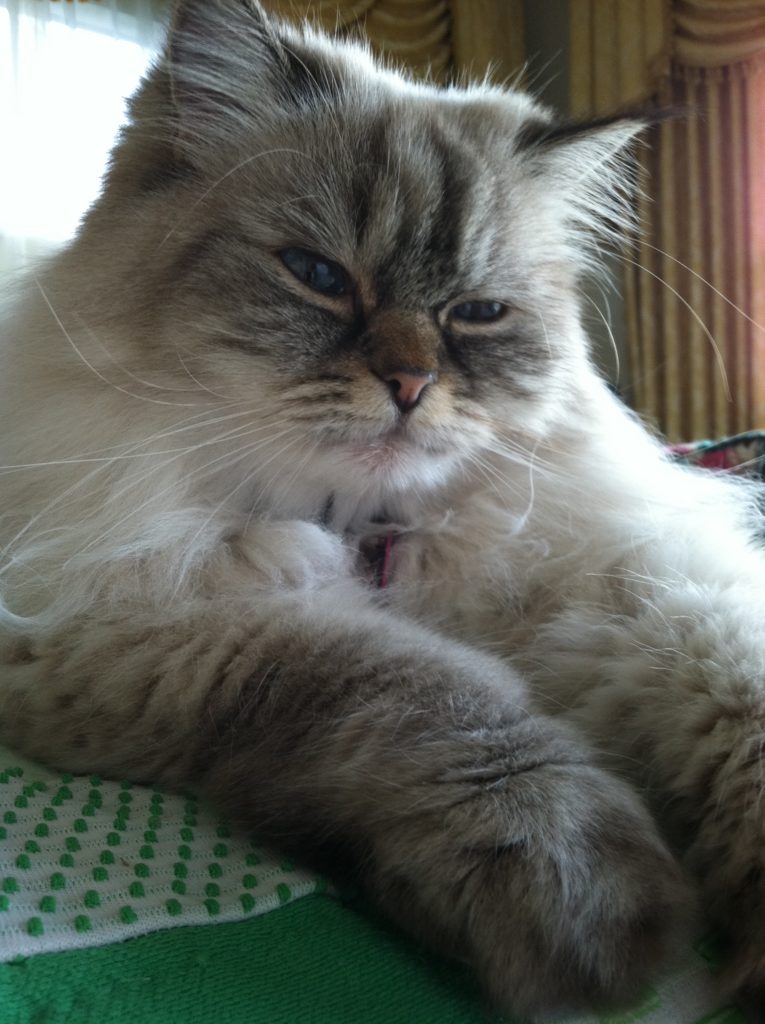
Her stories were miraculous, delightful, funny. As we traveled from campground to campground, during a quiet moment in the car, or during a moment of tension, all I’d have to say was, “300 yards back, three small bears swerve from behind one car to another in their three-wheeler,” and in a heartbeat, Laura would pick up the strand and spin out another story.
I would laugh. She would laugh. We would both laugh together.
Laura and I have remarked in wonder, more than once, about how different things were after we got back together almost a decade after we broke up.
“We never really laughed,” she told me. “Now we do all the time.”
In fact, thanks to the lesson my mother taught me, laughter is very much part of our relationship vocabulary. We can almost always make each other laugh.
Some lessons take time to sink in.
But it took a memoir to finally understand what I had put my mother through.
My mother had high hopes for her oldest son. More than once, she told me she thought I would be a minister. Perhaps a teacher/minister like her brother Francis.
These hopes came crashing down when I fled our home, went to London on scholarship. At home in our Hartville, Ohio home, she prayed for me, quietly during the mornings over her Bible mediation, every day.
My letters home seemed careless, casual about my sins: drinking, smoking, dancing … and God only knew what else. I tossed off my confessions as poetry, she thought. Long after I quit receiving letters from her, she admitted to me on the phone that she had been unable to write to me after she found out I had begun drinking alcohol.
One of my college mentors, a professor who wrote often with caring but dispassionate advice, told me that after she attended my college graduation party my mother lovingly planned and hosted, my mother stopped her at the door.
She respected my professor’s strong faith, even though its Methodist disciplines were different than hers.
“Thank you for caring for my son when I couldn’t,” my mother said to my professor. I wasn’t there for the conversation, but when she related that conversation to me later, the look in my professor’s kind eyes cut me.
It would be almost two decades before I was able to talk to my mother without a shadow darkening our relationship.
She could have refused to talk when I called home (she never did!), and she could have sent far more of her admonishing letters (I only have a few), and she could have screamed at me for what she thought I was doing.
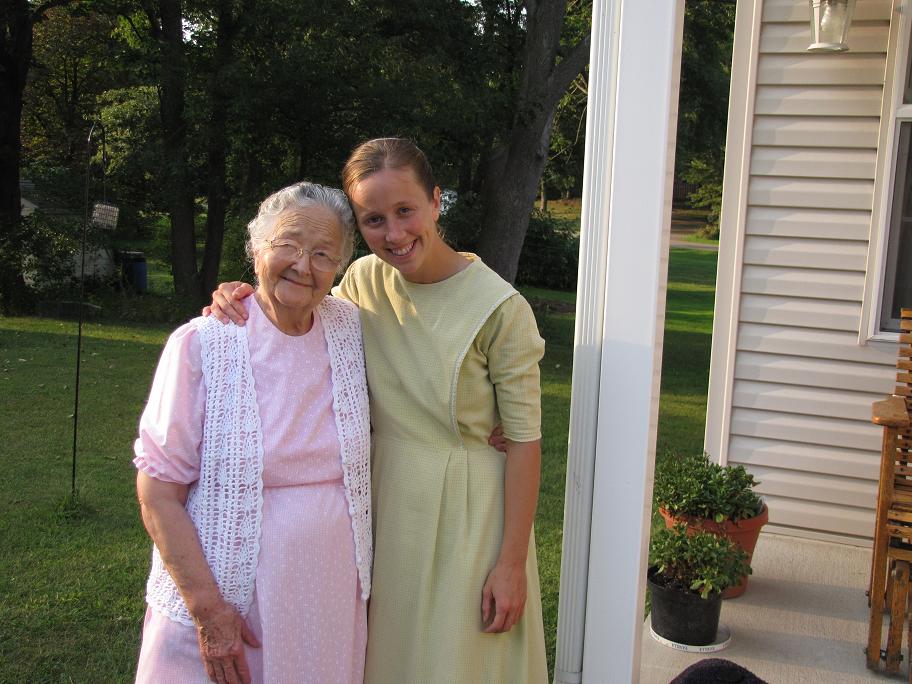
But she never did.
Her silence said enough. At one point in time, I was sure she was manipulative, but when I look back at those years, and try to see myself through her eyes, I am astonished by her self-restraint. She knew who I was, knew how stubborn I was, knew I had to find my own path on my own terms.
But no matter how much we disagreed, no matter how much her silences shouted her disapproval, I never wondered whether or not Mom loved me.
She believed there was always the possibility of repentance, and redemption.
Most important, my mother taught me to take care of a garden.
My mother left school at the beginning of her tenth-grade year to work in my grandfather’s vegetable farm. She worked long hours in the blazing hot sun, heat that was supercharged by the black, silky ground my grandfather had reclaimed from the swamp.
My mother inherited her father’s green thumb. Although my father disliked working the garden — the gritty look on his face said everything as he fought with the rototiller to keep it between the long rows of green corn stalks — he knew it would be worth it.
My mother’s harvests were stunning. When all of us were still living at home, my parents had three gardens running (one of them was rented land from our neighbor), and it produced enough fresh vegetables and fruit to stock an entire canning cellar — with groaning shelves of canned jars lining it.
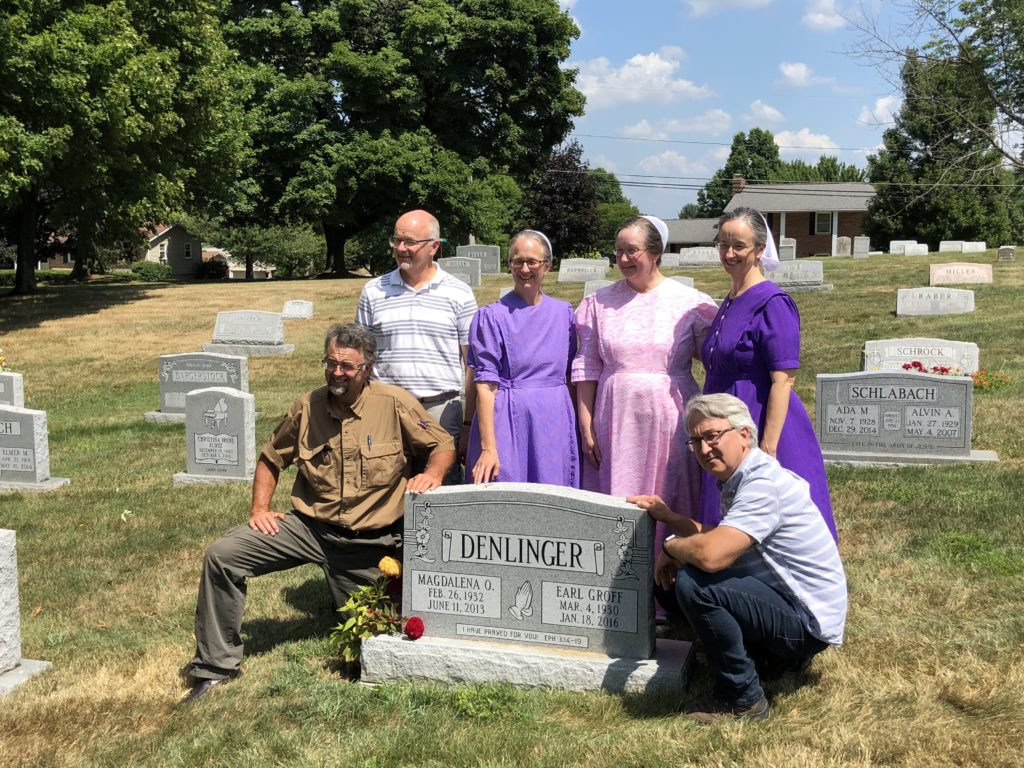
In spite of my father’s meager salary, our family never went hungry.
Not that it was any fun. We children spent our summers tending those gardens. The time I spent reading was now interrupted by regular chores: the weeds needed to be tended. Then came harvesting, and preparing the food. Our August was given over to work in a steaming kitchen, pans of jars simmering on a stove as the mason jars sealed.
I thought I hated all of it.
But two years after my mother passed on a warm June night, I found myself the proud owner of an acre of land in Dockton, WA. The garden space was a mess, with netting and broken-down posts turning any garden I created into a virtual feast for the many deer who inhabited the surrounding trees.
I had left some tomato plants still in their pots outside our garage one day, only to find them nibbled down to the roots.
And so that first summer, I sweated in the hot sun, reclaiming the garden, tilling the weed-infested soil, rebuilding the fence around it, and eventually, turning it into a well-watered garden.
As I worked the garden that summer — weeding, hoeing, watching it yield — I felt the spirit of my mother pacing beside me.
It brought back some of the best memories: my mother working with me on the garden we created in Ohio during the year I spent with her before her death, when I saw her come alive while planting pungent, green tomato starters and rows of coated seeds that would eventually yield deliciously sweet Silver Queen corn.
Somehow, in that last year with her, she had gifted me with one of her great loves: the love of growing things.
It didn’t surprise me at all when I learned that on the night of her death, when her best friend had come to visit her, and after they had talked and prayed together and my mother’s best friend was about to leave, my mother called her back.
“Tell Marjorie to make sure she weeds the garden tomorrow,” my mother reminded her friend. “We don’t want the weeds taking over the corn.”
My mother was just like that.
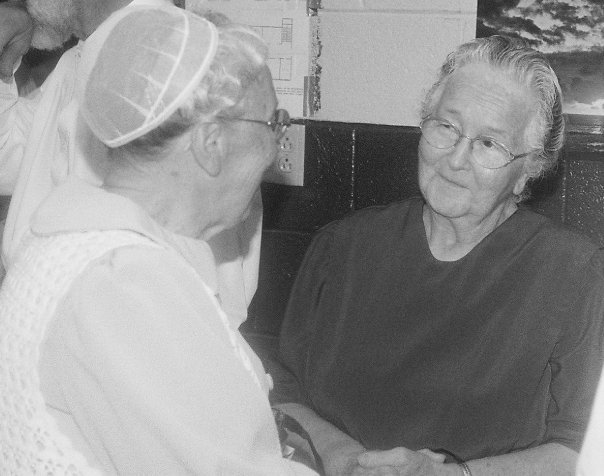
My mother loved all living things — her children, my father, the garden — and expressed that love in practical ways. She laughed until she cried, teaching me that any argument can be mitigated with laughter if you care enough. She showed me how to forgive.
Because underneath it all was the real belief that faith and laughter allow us to have hope in God, in each other, and in a future where we will be redeemed from the dank earth in which we now live and learn and grow.

Such a lovely tribute. And it’s clear she loved you deeply.
Yes, Janie, you probably recognized yourself in this piece. Thanks so much for passing on that Grace note in my life back then.
I can only pray that my children will remember me as tenderly.
I’m sure they will, Jody. Thanks for reading this.
Thank you for your memories, Steven. While working side-by-side with your Dad, I often heard him speak lovingly of his Maggie. “My Maggie.” He adored her. And the times I visited your home – and later, their home – I can’t remember a single moment when Magdalena had anything but a loving, welcoming smile on her face.
You give a lovely tribute to our Mom, Steven. And I know Mom cared a lot for you and all of us! She was one very special person! David really enjoyed your writing too. Marcia